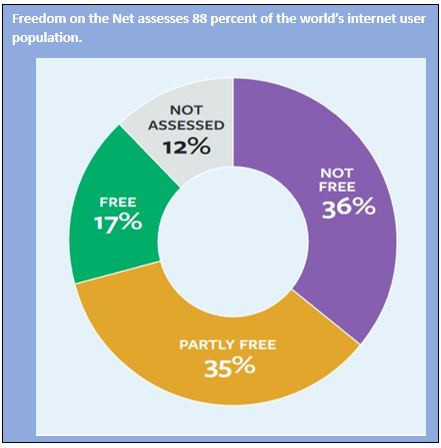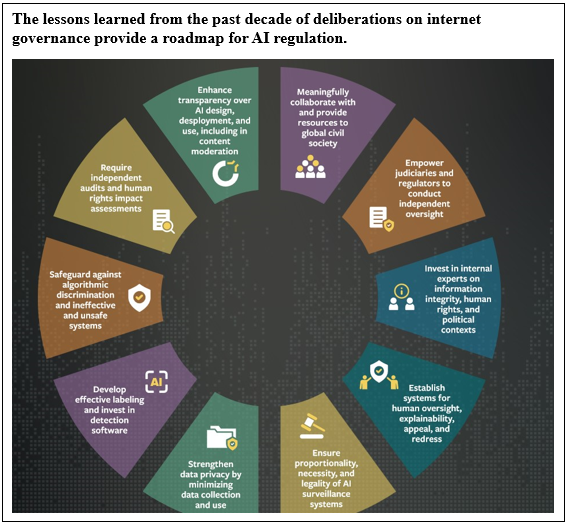- Courses
- GS Full Course 1 Year
- GS Full Course 2 Year
- GS Full Course 3 Year
- GS Full Course Till Selection
- Answer Alpha: Mains 2025 Mentorship
- MEP (Mains Enrichment Programme) Data, Facts
- Essay Target – 150+ Marks
- Online Program
- GS Recorded Course
- Polity
- Geography
- Economy
- Ancient, Medieval and Art & Culture AMAC
- Modern India, Post Independence & World History
- Environment
- Governance
- Science & Technology
- International Relations and Internal Security
- Disaster Management
- Ethics
- NCERT Current Affairs
- Indian Society and Social Issue
- NCERT- Science and Technology
- NCERT - Geography
- NCERT - Ancient History
- NCERT- World History
- NCERT Modern History
- CSAT
- 5 LAYERED ARJUNA Mentorship
- Public Administration Optional
- ABOUT US
- OUR TOPPERS
- TEST SERIES
- FREE STUDY MATERIAL
- VIDEOS
- CONTACT US
Freedom on the Net 2023
Freedom on the Net 2023
06-10-2023

Latest Context
- On 4 October, 2023 Freedom House released 13th report, titled ‘Freedom on the Net 2023: The Repressive Power of Artificial Intelligence’.
- It evaluates Internet freedom in 70 countries, accounting for 88% of the world’s Internet users.

Evaluation Criterion
- The report evaluates countries on five censorship methods:
- Internet connectivity restrictions.
- Blocks on social media platforms.
- Blocks on websites.
- Blocks on VPNs.
- Forced removal of content.
- Each country is ranked on a scale of 100 to 0, with ‘100’ representing the most-free conditions and ‘0’ the least free.
Global Findings
- According to report, almost 4.9 billion people have access to the internet.
- Global internet freedom declined for the 13th consecutive year.

- Iceland remained the best environment for internet freedom for the fifth consecutive year, followed by Estonia.
- Sri Lanka earned this year’s largest score improvement after authorities did not repeat blocking of social media platforms that had been imposed in April 2022.
- As per the report, the sharpest rise in digital repression was witnessed in Iran, where authorities shut down social media platforms and increased surveillance in a bid to quell anti-government protests.
- China, for the ninth straight year, ranked as the world’s worst environment for Internet freedom, with Myanmar the world’s second most repressive for online freedom.
India specific Findings
- India’s Internet freedom is ranked at 50 on a scale of 1 to 100.
- India is found to engage in all the methods used for censorship except virtual private network (VPN) blocking.
- A VPN is a mechanism for creating a secure connection between a computing device and a computer network, or between two networks, using an insecure communication medium such as the public Internet.
- AI-enabled digital repression in India has incorporated censorship, including the use of automated systems, into the country’s legal framework.
- For example, The Information Technology (Intermediary Guidelines and Digital Media Ethics Code) Rules require large social media platforms to use AI-based moderation tools for broadly defined types of content.
4. India also figured among the list of countries that blocked websites hosting political, social, or religious content and conducted technical attacks against human rights organisations

Way Forward
- Establish strong human rights-based standards for both state and non-state actors that deploy AI tools.
- Need for addressing long-standing threats to privacy, free expression.
- Strengthening legal requirements for transparency, data privacy and platform responsibility.
- Government surveillance must be legal, necessary, and proportionate.



